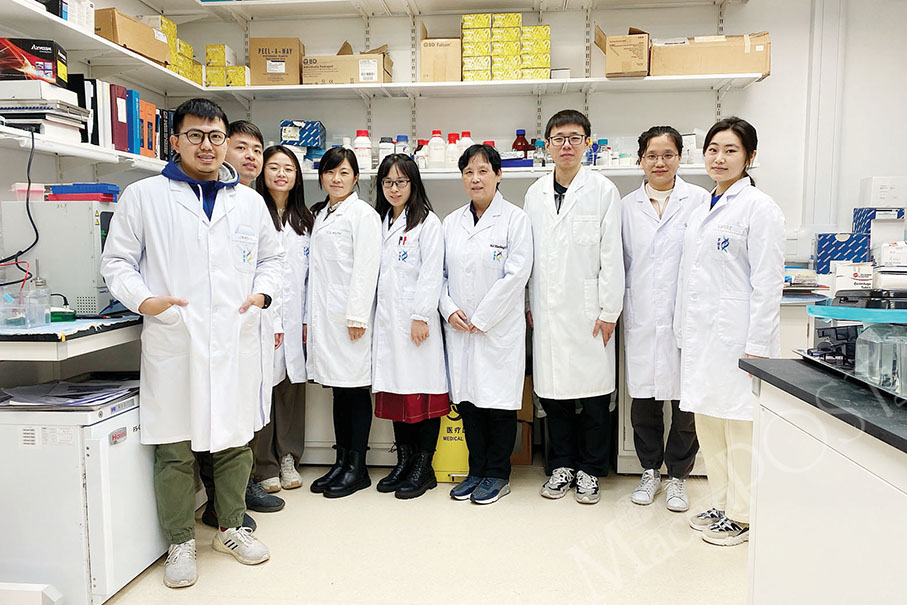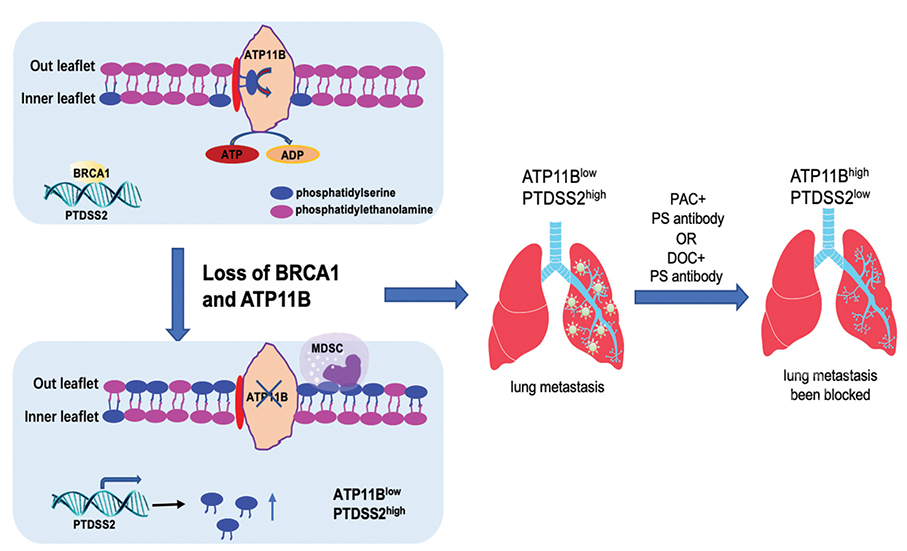The University of Macau (UM) announced in a statement on Tuesday that “significant progress” has been made by a research team led by Faculty of Health Sciences (FHS) associate professor Xu Xiaoling (aka Xiaoling Xu) in its research on breast cancer metastasis.
According to the statement, the team used “whole genome knockout library” and established that “ATP11b” is the breast cancer metastasis suppressor. The team discovered “the mechanism of ATP11b-mediated metastasis and the corresponding targeted therapeutic agents through cellular and animal model validation”, which the statement noted is expected to improve the treatment outcome for patients with metastatic breast cancer.
The US National Cancer Institute defines metastasis as cancer cells spreading from the area they initially formed to another part of the body
The statement pointed out that tumour metastasis is the most frequent cause of death in breast cancer patients and given metastasis’s complicated process, which includes “abnormal proliferation, in situ invasion, vascular invasion, and colonisation in distant organs”, the driver gene’s role in metastasis’ initiation attracted significant attention.
The statement added that past studies mainly focused on “abnormal gene expressions in the metastatic tumour using the next-generation sequencing (NGS)”, followed by biological validation to locate the relevant driver genes.
However, only a few could rule out the “interference of passenger genes detected by NGS”, the statement said. Moreover, “BRCA1 mutant tumour” is susceptible to metastasis and “blocking BRCA1-induced metastasis” has internationally challenged researchers.
Moreover, with only limited drugs for patients with metastatic cancer to select from, increasing importance has also been placed on finding “candidate drugs to change the expression of driver genes” and assisting patients pick appropriate drugs, the statement underlined.
The team utilised “genome-wide knockout library technology to screen the driver genes in whole genome-wide and identified the common metastasis suppressor ATP11b”. The statement noted that knocking out ATP11b in the DNA level “significantly increases the ability of metastasis of BRCA1 mutant cells”.
Inducing non-apoptotic phosphatidylserine (PS) exposure on the cell membrane produces “immune suppressive signal in tumour microenvironment (TME) and promotes the formation of pre-metastatic niche”. Through public database research and cellular validation, the statement pointed out that the team verified that paclitaxel and doxorubicin were efficient in blocking ATP11b-associated tumour metastasis.
The website Chemocare points out that both paclitaxel and doxorubicin are anti-cancer chemotherapy drugs.
The study was authored by Prof Xu Xiaoling and Prof Deng Chuxia (aka Chu-Xia Deng), while PhD student Xu Jun is the first author. Moreover, important contributions were also made to the study by other FHS postgraduate students, specifically PhD students Su Sek Man and Zhang Xin, and master’s student Chan Un In; research assistant Ragini Adhav; research assistant professor Miao Kai; and members of the animal facility.
The study was supported by Science and Technology Development Fund (FDCT) grants and UM Multi-Year Research Grant, the statement added.
The study was published in the Journal of Clinical Investigation and can be viewed at https://www.jci.org/articles/view/149473/pdf.

This undated handout photo provided by the University of Macau (UM) on Tuesday shows Faculty of Health Sciences (FHS) associate professor Xu Xiaoling (4th from right) and PhD student and the research’s first author Xu Jun (3rd from right) posing with the research team in a lab.

This infographic provided by UM shows ATP11B, a potent metastatic repressor.









